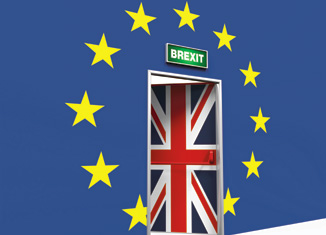Post-Brexit negotiations to sort out the future relationship between the UK and the EU finally started in March. It is an enormous task covering dozens of policy areas from trade in goods and services, to fishing and farming, the environment, employment, data sharing, security cooperation, transport and more.
The deadline is the end of this year, which is the expiry of the transition period that began when the UK formally left the EU on 31 January. However, the British government has threatened to walk away from the talks if no overall framework is agreed by June, but with the number of Covid-19 cases rising exponentially across Europe and supermarket shelves already running empty in March due to panic buying, would the UK government take the enormous risk of a “hard Brexit”, which as the potential to cause backlogs at shipping ports and could push the panic buying here into overdrive? Focusing on the negotiations, both sides were outlining sharply contrasting positions as they flexed their muscles in advance of the talks.
What does the UK want from the EU?
Boris Johnson is aiming for a radically different arrangement from that sought by Theresa May who was ready to keep the UK in the EU’s orbit to preserve frictionless trade. But the current PM prioritises maximum freedom for the UK to determine its own policies.
“We aren’t frightened by suggestions there is going to be friction, there are going to be greater barriers. We know that and have factored this in and we look further forward – to the gains of the future,” said the UK’s chief negotiator David Frost, who arrived in Brussels on 2 March, armed with 100 advisers and civil servants.
The UK wants a “comprehensive free trade agreement” similar to deals struck by Brussels with the likes of Canada, Japan and South Korea. These agreements remove most tariffs and the countries are not obliged to stick closely to EU rules.




















